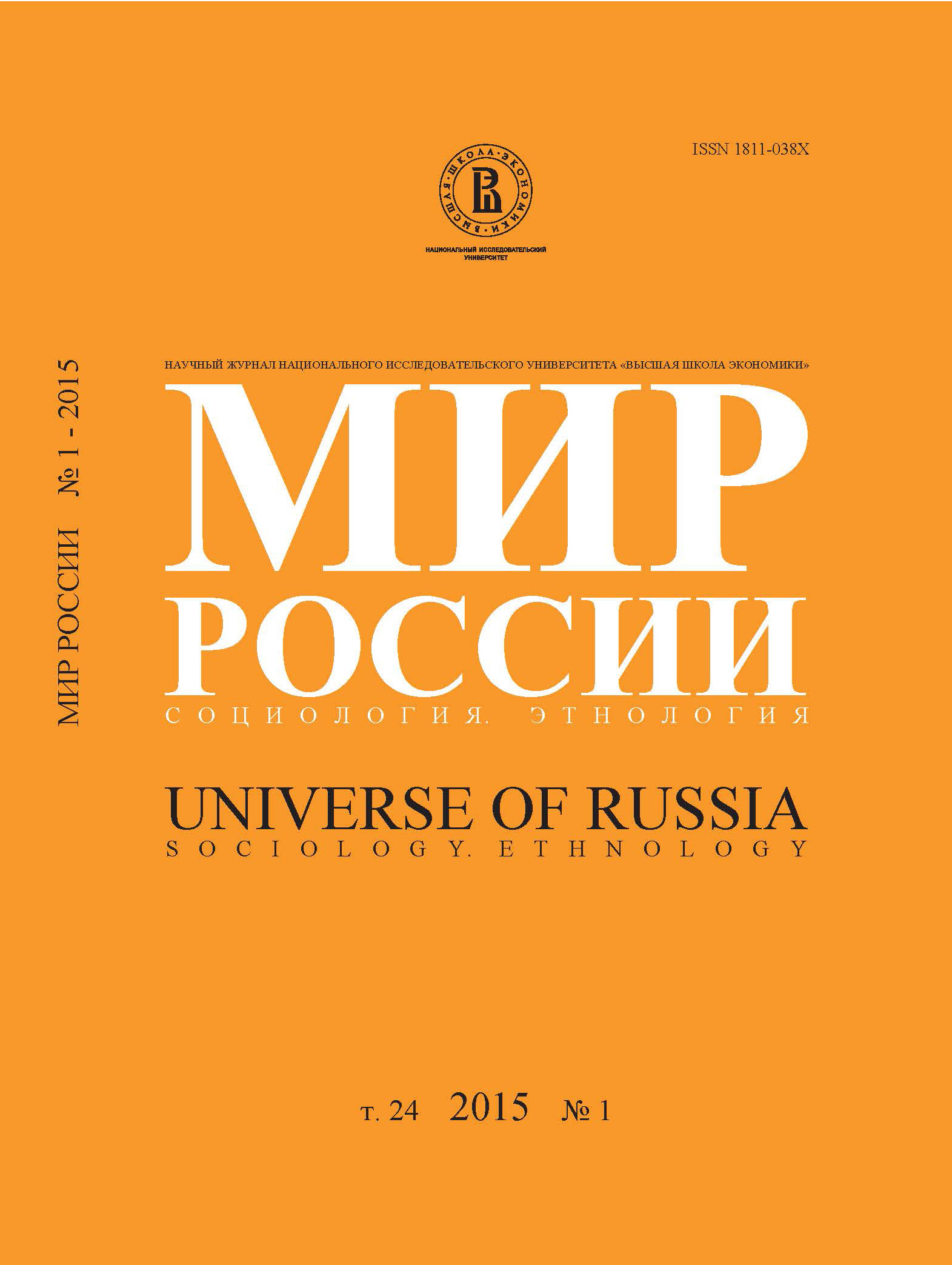Seasonal Work (Otkhodnichestvo) as a New Social Phenomenon in Modern Russia
Abstract
Juri Plusnin — Professor, Department of Local Administration, Higher School of Economics. Address: 20, Myasnitskaya St., Moscow, 101000, Russian Federation. E-mail: jplusnin@hse. ru
Artemiy Pozanenko — Analyst, Project and Educational Laboratory for Municipal Administration, Higher School of Economics. Address: 20, Myasnitskaya St., Moscow, 101000, Russian Federation. E-mail: arpozanen@mail. ru
Natalia Zhidkevich — Analyst, Project and Educational Laboratory for Municipal Administration, Higher School of Economics. Address: 20, Myasnitskaya St., Moscow, 101000, Russian Federation. Address: 20, Myasnitskaya St., Moscow, 101000, Russian Federation. E-mail: natalia. zhidkevich@gmail. com
The article presents the results of an investigation into the life and social standing of a particular new group in Russia: seasonal workers (otkhodniks). Being a seasonal worker (otkhodnik) is a special form of labour migration, i. e. the proactive go-and-return (seasonal) migration of inhabitants of smaller towns and rural villages to capital cities and industrial areas. The authors provide a rough estimate of the scale of this phenomenon, and describe the trends in its development. It is estimated that no less than 15-20 million of Russians do seasonal work (otkhodnichestvo) with at least one in three families in the Russian provinces living on income derived from these occupations, the economic
activity of which is not registered by official statistics. Seasonal work (otkhodnichestvo) re-emerged in the mid 1990s in the smaller towns of the European part of Russia, but nowadays it also covers rural areas and extends throughout the country. External occupations include both small ‘shadow’ businesses (primarily in the northern regions), and ‘shadow’ employment in the service sector (more typical for the central and southern regions).
Contemporary seasonal work (otkhodnichestvo) is more than just a new model for coping and survival, and it is regarded as a new social and political phenomenon. For instance, since seasonal workers (otkhodniks) mostly work in the ‘shadow segment’ of the economy, they are also forced to lead a covert way of life. They are rarely involved in public life, even though, paradoxically, they are usually the most active members of their local communities. As a result it affects the character of relations both in the private sphere (i. e. affecting family, friends and neighbours) and the public sphere (i. e. relations with local public institutions and the state). Seasonal workers (otkhodniks) also bring new cultural stereotypes which may be new to the local community (acting as contemporary kulturtragers), and even form the basis for new political relations at the local community level.






